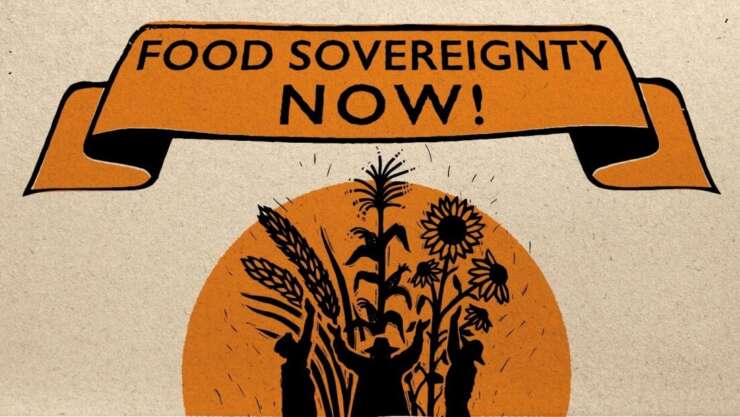After covid-19 and the war of Ukraine there is an increased problem of food insecurity and once again, the most affected are the peasantry. Besides the extreme temperatures and water stress that problematizes feeding their population, the problem is the loss of sovereignty over their land, food and resources. If the people don’t have any voice, the action of global institutions and foreign actors puts in danger the project of food security. For instance, in the MENA region (Middle East and North Africa), since Russia and Ukraine were the main cereals providers, the conflict has affected people’s access to food endangering the already weakened food security since the food crisis of 2007.
Food sovereignty opens the door to questioning free trade in general, and free trade food regimes in particular. It challenges the actual industrial agricultural system and points out its obsolescence. Food sovereignty is compatible with fair trade, joining forces can result in transnational solidarity far from the corporate global market. Another path to explore on the topic would be the implementation of digital technologies as a revolutionary solution to improve sustainability in agricultural systems. It can make the sector not only more efficient, but more inclusive and environmentally conscious.
Policymakers are urged to expand their traditional, production-centric views of the agri-food sector to account for social and environmental considerations and to work towards a digital future in which the agri-food sector not only generates productive value but also delivers on social and environmental sustainability.
The first affected by climate change are the peasantry, but they are also affected by the violence that suppose land dispossession, food prices and climate change. The present challenge of food sovereignty in the global south, should be approached with all the tools available, including the tool that technology supposes. The links between the concepts of ‘food sovereignty’ and ‘fair trade’ could promote connections between labour and community struggles and foster labour solidarity at both the transnational and local levels.




